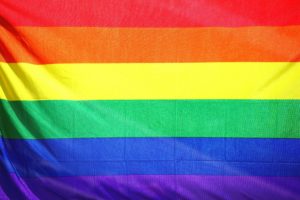With Pride Month becoming increasingly commercialised, Dr Olivier Sibai, Lecturer in Marketing at Birkbeck, University of London, Dr Mimoun, Lecturer in Marketing at the Business School (formerly Cass), and Dr Achilleas Boukis, Lecturer in Marketing at the University of Sussex discuss how brands are engaging with the month of celebration.
It’s June again, the first heatwave has arrived, flowers are blooming, and more and more rainbow avatars appear on your social media feeds! Yes, it’s Pride Month again and brands won’t let you forget it! As everyone celebrates Pride, brands won’t stop showing their surface-level love and support to position themselves as socially progressive and increase their resonance with their younger audience. From brands’ rainbow LinkedIn profile picture to Google Doodles, every brand and its neighbor are jumping on the occasion to demonstrate their virtue. Yet, people are not so easily fooled and criticism abounds! Between accusations of rainbow-washing, blog posts wondering whether we can escape the commercialisation of Pride, and lists of brand’s “Pride fails,” consumers show their disapproval vocally.
Our research recently published in Psychology and Marketing uncovers how consumers interpret brands’ LGBTQ+-related support and decide on whether to condemn or to approve them. We show that consumers are more likely to condemn brands as ‘woke-washers’ if they are unable to prove morally competent. Specifically, media and consumers make up their minds on the biggest corporates by assessing such performative acts of allyship through three moral criteria: sensitivity, vision, and integration.
Moral sensitivity — a brand must recognize the moral content of a situation as failure to do so is likely to damage customer satisfaction, customer-brand relations, and brand equity. For example, by posting straight characters walking over the rainbow flag, Disney has proved morally insensitive to the stigma and discrimination that LGBTQ+ individuals are still experiencing in many instances.
Moral vision — a brand must show a clear moral vision when outlining challenges to free speech that help solve problems for markets and society as failure to do so results in brands being dubbed as ‘conformists’ — those who reproduce the dominant moral judgments about what is acceptable to say publicly. While Mattel still shows a lack of moral vision by mostly reproducing mainstream discourses around gender and diversity, it at least shows some moral integration with the launch of gender-neutral Barbie dolls in 2019 followed by the launch of the UNO Play with Pride edition this year (alongside $50,000 donated to the It Gets Better Project).
Moral integration — a brand must have the ability to pursue their moral beliefs in all situations as failure to do so results in brands being dubbed as ‘opportunists’ and ‘fame-seekers’ — manipulating the boundaries of free speech to serve personal interest rather than reform morality. For example, despite sharing the positive experience of its LGBTQ+ staff members, Pfizer demonstrates a lack of moral integration by simultaneously funding anti-gay politicians.
But let’s not despair, some brands have understood the point of Pride Month and, in doing so, further the fight for LGBTQ equity and inclusivity. For example, over the last few year (moral integration), Skittles celebrates Pride Month with a limited-edition Skittles Pride Packs (gray packaging and all gray candies) to emphasize the rainbow visual as a symbol of the LGBTQ+ community (moral sensitivity), alongside donation of $1 from each pack to GLAAD.
So has Pride Month just become another branded holiday? Well, it’s not for us to settle. But what we can tell you is how to judge the genuineness of branded communication: evaluate the brand’s moral sensitivity, vision, and integration. While we can condemn the over-commercialisation of Pride Month, the good news is that these branded discourses, whatever their values and intent, still raise awareness of the LGBTQ+ cause and normalize and legitimize its presence in public discourse.
Want to know more? ‘Authenticating Brand Activism: Negotiating the Boundaries of Free Speech to Make a Change’ by Dr Olivier Sibai, Lecturer in Marketing at Birkbeck, University of London, Dr Mimoun, Lecturer in Marketing at the Business School (formerly Cass), and Dr Achilleas Boukis, Lecturer in Marketing at the University of Sussex, is published in Psychology & Marketing.

